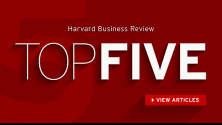According to a survey of HR professionals, leader and manager effectiveness is a priority for 60 percent of HR leaders in 2023. Effective leadership requires us to look back before we look ahead and consciously reflect on how we can unlock our full leadership potential in the New Year.
Since I’ve taken on the COO position, I’ve learned a critical lesson: Leadership requires an open mind, the ability to see the whole picture, and a willingness to foster the human-to-human dynamic in the workplace. As organizations compete for talent and struggle with change fatigue, leaders must remain agile and resilient. That means getting to know your people and understanding how to best support their work.
Here are a few areas I hope to develop as a leader in the coming year to help our team and organization thrive:
1. Define accountability
Not all team members understand accountability or even what they are responsible for. That’s because we don’t all think the same way – especially in the government and IT landscape. And that’s okay. However, it’s also why it’s so important to define accountability clearly: What it is, what that team member is responsible for, and what that entails.
[ Also read IT leadership: 5 Tips for smarter collaboration. ]
Every team member has a role to play. Encourage everyone to take a few moments at the end of the year to think about and communicate what they are accountable for. It’s a great first step toward a successful 2023.
2. Empower your team
Leadership isn’t a straight path or a single person; it’s a guiding principle that helps direct and maintain a path for your team. Empowerment cultivates trust and acts as a guide. It also requires humility – that human-to-human dynamic at play – and knowing when to follow.
Finding your style of leadership and empowering others – whether by listening, observing, or trying something new – is critical in your professional journey. As new generations of professionals enter the workforce, I encourage leaders to listen, observe, foster their skill sets, and give them the flexibility and tools they need to succeed.
3. "Eat your own dog food"
This phrase refers to the internal use of a company’s products and services in its day-to-date operations. Popularized by Microsoft in the 1980s, the idea was that if the products (in the case of Microsoft, the operating systems and tools employees used to develop software) were good enough for consumers, they were good enough for employees to use on the job.
Conversely, if they weren’t good enough for your team to use internally, then you shouldn’t be selling them to customers. Being effective internally and “eating your own dog food” leads organizations to be effective externally.
4. Practice gratitude
As we head into the season of gratitude, our organization’s mission is to practice and choose gratitude as a conscious part of our workplace routine, 365 days a year. From a quick recognition in a company newsletter to putting someone in the “gratitude hot seat” during a team meeting, showing team members that you appreciate them can improve engagement, retention, productivity, and morale and helps create a strong, positive culture. Implemented consistently and regularly, these small recognitions can make a big difference.
As 2022 fades into 2023, I encourage you to focus on ways to invest in and engage with your team. Define accountability, implement employee empowerment, put processes in place that work for clients and your team, and look for every opportunity to tell your team you are grateful for their contributions.
Leadership is constantly learning, and part of that learning includes resolving to improve the way you lead – not only in January but throughout the year.
[ Ready to level up your communication skills? Get advice from IT leaders. Download our Ebook: 10 resources to make you a better communicator ]







